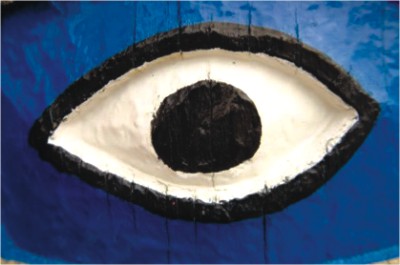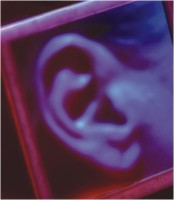
Inside
|
Not for sale Rumi Ahmed takes on the thorny issue of organ donation The sound of my pager breaks the silence. A text message flashes in my pager: "Mr. John Doe is now a donor." An attempt by the resident doctor to keep me informed of my patients. This text would seem meaningless to anybody, but these words may potentially bring back a meaningful life for half a dozen souls.
Now, as soon as Mr. John Doe is declared brain dead, his status changes from being a patient to a donor. An extremely organised donor agency then takes over the body. They work with supercomputer precision and speed. They keep the body viable for better organ harvest, do all the screening tests, an extensive computerised database starts searching for possible recipients, and organ harvests and transplantations are arranged. Organs are flown from coast to coast within minutes' notice to the matched recipients. A team of surgeons, specialist nurses, and technicians will fly small private aircrafts within less than an hour notice. Time of the day or night, weather, holiday, even Christmas will not stop organ flights. Time is so important that while one organ starts its flight, another group of surgeons will already have put the proposed recipient under anesthesia and opened up the body and set it up for the transplant. Several months ago, one such flight collecting a lung from my hospital crashed in Lake Michigan on its way to University of Michigan Hospital. All the six passengers including two brilliant transplant surgeons were killed in that accident. The proposed recipient was already under anesthesia, but opening of the body was stopped by a last moment phone call from the national transplant coordination center after they lost contact with the flight. While organ collection processes begin, a bunch of people receive their most awaited telephone call ever. "Linda/John/Betty/Steve …your lung/heart/kidney/liver … is ready. Let's get ready for operation within the next hour." Someone in California gets a much needed lung, the heart goes to Connecticut to renew a young girl's life, and the liver emergently flies to Nebraska to save another life. Each day, in the United States, about 74 people receive organ transplants. However, 18 people die each day waiting for transplants that can't take place because of the shortage of donated organs. Between January to March of 2006, a total of 5207 organs were donated from deceased donors and 1,705 organs were donated by living relative donors. The US, like any other developed country, only allows living relative donor of certain organs and cadeveric donors. No sell or purchase of organ is permitted by law. All of those 1705 living donations in the first three months of 2006 came from family members -- may be the loving sister, may be brother, may be the child, or may be one of the parents. This is the scenario on one side of the world.
Now let's see what happens on the other, less fortunate, side. In Bangladesh and many other countries with similar socio-economic status, we claim that we have better family values than the west. The ground reality does not corroborate with our claims. Let me give a few examples. Not too long ago I received this chain mail requesting financial donation for a university student: Our friend X who lives in Canada lost both of his kidneys about two years ago. He is doing dialysis three times a week. There is a long waiting list (10 to 15 years waiting) in Canada for kidney transplantation since people here do not sell organs. He found somebody in Bangladesh who is willing to sell one of his kidneys. He needs to go to Madras with that person to do the transplantation. The whole process including recovery and rest will probably take three months and will cost around US$25,000. He does not have that much money. I replied that the Buet student can live a meaningful functional life thanks to free hemodialysis and the Canadian healthcare system. But if I have to donate money, I'll donate to that seller who is compelled to sell an organ out of poverty. And if Canadians or Americans donate their organs for their family members, why can't we? Another example -- a friend called from Chennai, India to inform me that his elderly mother-in-law had just passed away. She received kidney transplantation the previous week and had been critically ill since then. The young girl, the kidney donor, who was selected from a group of dozens of interested matched kidney seller, was doing fine. If you happen to travel to the Chennai hospital district, you will face these repeating obscene events -- dozens of elderly out of shape men and women, accompanied by young healthy men/women. The poor youth will sell their kidney and the older rich will buy it. One's goal is freedom from disease and the other's is freedom from poverty.
We probably won't be able to stop organ trade. But the question comes up: why? We pride ourselves on our family values, but is this what we call the world's best family value? Shouldn't we stop a 19-year-old poor person selling his or her kidney to a 70-year-old rich person? I strongly feel there should be an age barrier in organ transplantation in Bangladesh. I know some Indian hospitals have an age limit, but do we have that in Bangladesh? The government at least should warrant life long treatment expenses of seller by the buyer's family. There should definitely be a legal umbrella for the organ sellers. And, by the way, to whom should we address our concerns? If there is to be an organ transplantation regulatory body in Bangladesh, which ministry will oversee it -- health or commerce? Dr. Rumi Ahmed is a physician and works in the US. He is a member of Drishtipat Writers' Collective. |
 Let me give a little background. Mr. John Doe was in the neurosurgical intensive care unit with head injury in a high-speed motor vehicle crash. His brain injury was extensive and the hope of a recovery was fading rapidly. In the morning I had a long conversation with the family that included the parents and the siblings. The family was in agreement that if there was no hope, the doctors might withdraw life support. They also inquired whether their son could donate his organs; those may save the lives of others.
Let me give a little background. Mr. John Doe was in the neurosurgical intensive care unit with head injury in a high-speed motor vehicle crash. His brain injury was extensive and the hope of a recovery was fading rapidly. In the morning I had a long conversation with the family that included the parents and the siblings. The family was in agreement that if there was no hope, the doctors might withdraw life support. They also inquired whether their son could donate his organs; those may save the lives of others. 
 Even most of us, the educated part of the society, are not ready to donate part of our body for the loved one. We would rather buy a kidney from someone else's son, daughter, brother or sister.
Even most of us, the educated part of the society, are not ready to donate part of our body for the loved one. We would rather buy a kidney from someone else's son, daughter, brother or sister.